Why wanting doesn’t work On the surface, that may sound counterintuitive. How can dating not be about what you want? How could dating even pretend to bring any semblance of happiness without accounting for individual preference? Am I suggesting we’re all interchangeable parts or that we should embrace arranged marriages? No, we’re not interchangeable parts. And although there have been days I wished I could have an arranged marriage just so the frustrations of my dating life would end, those days are far behind me. Now I approach dating differently, and my approach comes from more effective thinking which aligns better with the fundamentals of the dating journey. We’ve discussed countless times in previous broadcasts about one such fundamental: To progress to any stage of the dating journey, you must have the requisite agreement. And how do you secure that agreement? How do you secure any agreement? You do it by being agreeable enough. So if you aren’t progressing in your journey, you need to become more agreeable. This is why dating isn’t about what you want. You can want all you want, but no amount of wanting will compensate for not meeting the other person’s definition of agreeable enough. It’s easy to focus on how the other person’s standards are unrealistically high. But even if they really are, you still won’t progress in your dating journey if you aren’t agreeable enough. That’s why it’s called a fundamental. Why bringing works better Yet many LDS singles approach dating with the assumption it’s about what they want. And many LDS singles experience great frustration with dating. That’s not a coincidence. The one follows the other like night follows day. Instead of approaching dating with the idea it’s about what you want, focus instead on what you bring. Think about it. The ideal marriage is the union of two imperfect people who help each other achieve perfection. That last part — “help each other achieve perfection” — isn’t based in either partner taking. It comes from each partner giving. It’s about what you bring, not what you want. Of course, to give, you must have something to give. That’s where working on yourself and having a personal ministry take center stage. When you improve upon yourself and devote yourself to making your own unique combination of goodness to the world, you build an interesting life that others find more inviting. Fundamentally, you become more agreeable. Bring on the real I’m not saying what you want doesn’t factor into dating at all. There is a place for expressing and acting on personal preferences. It’s just not behind the driver’s seat of the most effective approach. And you do have the option of finding someone whose standards of acceptance are low enough to admit you just as you are, but that’s not the more satisfying route. You’ll likely attract only others who want to stay as they are, and a union with such a person is just a mediocre existence. The real relationship is one that leaves you better for being a part of it. That’s one where each partner gives freely to the other, not just exist in the same space. Dating is not about what you want but about what you bring. Embracing that truth allows you to adopt a more effective approach to dating. You’ll more easily embrace the work needed to make you a better you. You’ll put yourself in service to others. Then you’ll experience the satisfaction of making progress. You’ll piece together your best life and thereby increase your probability of finding the companion who will with you make an truly real and ennobling relationship. And that will bring you more joy in your journey.
0 Comments
Imagine that — a quality so essential that nearly everyone has it on their dating deal breaker list, and yet not everyone understands it to be the same thing. And that’s a problem, because you could be your own worst obstacle if you don’t know what compatibility really is. What it’s not Success comes more easily to those who conform to true principles. When your approach deviates from those, you make it harder on yourself. And compatibility really is essential in building a successful long-term relationship. But first let’s talk about what compatibility is not. Compatibility is not liking the same things. Many LDS singles believe this, including myself in my younger days. But as I gained experience I began to see the error in this thinking. Liking the same things won’t get you through the challenging times. And challenging times come into every marriage. Perhaps more common these days is the misconception that compatibility is matching some idea of perfection. The more a candidate matches your ideal companion — or what you think is your ideal — the more compatible you two are. This idea assumes a perfect match will bring you a successful long-term relationship. And why wouldn’t it if the candidate is perfect? Because what you think is perfect probably isn’t. It’s natural to think you know what your perfect match is. But so often what we think and what actually is aren’t quite the same. And even if they were, perfect would bore you to tears. Joy in life comes in the journey, meaning you need to be changing, improving, progressing. There’s nowhere to go with perfect. What it is So if these things aren’t compatibility, then what is? Compatibility is an alignment in values and life purpose. The more alignment you have with someone, the more compatible you are. Why is this true compatibility? It’s the alignment of values and life direction that’ll pull you through the difficulties that come into every relationship. We all make decisions consistent with our values, so sharing similar values means naturally agreeing to the same decisions more easily more often. Moreover, traveling in different directions will make it harder to stay together because the desire to move in different directions creates tension in your relationship. If you and your companion persist in not aligning, you’ll eventually relieve the tension through separation. How much easier it is to stay together if you want to take your lives in the same direction! Get on it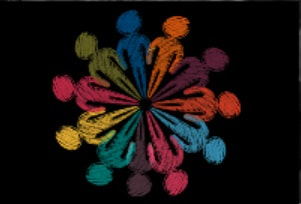 The alignment of values and life direction is true compatibility. And it’s essential for quality long-term relationships. But it rarely just comes without work. Marriage is hard work because it requires you to work not so much on your relationship as on yourself. The work is in aligning yourselves to a shared set of values and life direction. That doesn’t mean all your values are identical or that you have the exact same vision of what to make of your life together. But it does mean you’re aligned enough in those areas that you fit together like a hand in a glove. Because values and life direction can change as we age, spouses must continue to work at alignment as they grow old together. It’s in this way they thrive in their relationship as they help each other become more and more perfect. When you know what compatibility really is, you can then focus your dating approach towards what really matters most. You can emphasize eternal values in your relationships. You can begin to see others for where they’re going and not just where they are. Instead of looking for what’s wrong with potential candidates, you can savor more of the good they have to offer. And that will bring you more joy in your journey.
But then as I thought about it, I began to see I needed to see this differently. I’m not knocking the Light the World calendar. If you want to do that, that’s great. I just think I need to focus more on what I can give than on what I have received. I think I need to be that shining star for someone else rather than showcase what someone else has been for me. See your full potential 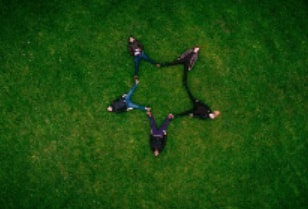 Yeah, I get it. Like I said, I’m not knocking the Light the World calendar or anything like that. It’s all good and, like I said, if you want to do it, then do it. There’s a lot of good that can come from that. But when I turn the consideration away from what others have done or will do and towards what I will do, I feel I need a different focus. It’s not hard for me to see that producing Joy in the Journey Radio has helped me undergo a transformation. I’m not the same man I was last year, and next year I won’t be the same man I am this year. What’s happened? What’s changed? And what’s driven that change? I think the essence of it is simply that I’m becoming more of the man that God wants me to be. And that man is a man who spends his days serving others, helping others, and inspiring others to become the men and women God wants them to be. I think that man is a man devoted to helping others along the covenant path of eternal progression. And when I say that, I’m not just talking about the spiritual. I’m talking about the total package — the physical, the emotional, and the mental/intellectual as well as the spiritual. That’s because I think God wants each of us to become the total package. Understand the bigger picture Don’t misunderstand me. I’m not suggesting we all become identical clones of some unrealistic ideal. Your total package may not be the same as my total package. But your total package represents the fulfillment of your potential just as my total package represents the fulfillment of my potential. And that’s really the whole idea behind why we’re here. The whole intent of our Heavenly Father’s plan is for us to achieve the fullness of our potential. Coming here to this fallen mortal world and having experiences in mortality allow us to take important steps along that path towards achieving our full potential. That’s what the covenant path of eternal progression really is. That’s what becoming the total package really is. It’s all just a series of steps that each help us to become more of that man or woman we can and should be. Truly light the world I’m not going to become the man I can and should be unless I turn my focus to giving. I need to do more of what the man I can become would do in order to become that man. I need to be that shining star for others because that’s what the man I can and should become is. Again, I’m not knocking the Light the World calendar. And hey, if you really need to do that in order to become the man or woman you need to become, then I say go for it. Pour your whole self into it. Whatever your potential is for you, pour your whole self into it and embrace the transformation. For many of us, I think that transformation will come when we decide to be the shining star for others. When we decide to hold up our light, others are both inspired to come out of the dark and given permission to hold up their own light. When they do, that will inspire others and give them permission to do the same. When we each decide to be the shining star we need to be, we can truly light the world. And that will bring us more joy in our journey.
Why we wear masks Masks conceal one’s true identity, allowing that person to act differently without incurring the consequences of having those different actions connected with one’s reputation. That’s why Batman wears a mask — to protect those he cares about from his enemies who would harm them to get to him. That’s not necessarily nefarious. That allows a freedom that couldn’t be found with concern over the consequences of one’s actions. And that’s the key: concern over consequences. You need the mask so others won’t connect what you do with your reputation. But if you were willing to accept whatever consequences came from your actions, you wouldn’t need the mask. You could simply live as you would while others have full view of who you really are. We naturally shy away from such circumstances. We all have a deep-seated need to belong, and it’s easier to belong when you do what everyone around you does — or what everyone around you expects you to do. Wearing a mask allows you have one identity you present to others so you conform to their expectations while in reality holding a different identity that would incur consequences from others if only they knew about that different identity. The application to self  I’m not suggesting all masks are bad. Who doesn’t like Batman? I’m just saying we need to concern ourselves with how we use masks. We need to understand what we’re really doing with the masks we choose to wear. We need to live with intention. As I apply that principle to myself, I see the need to put away a mask I’ve been wearing for myself. I’ve thought of myself as a solid performer in my work, someone who always delivers. But recent experience suggests otherwise. I may have never failed to deliver in a previous time, but times have changed. What happened? I’m not entirely certain. I think part of it is my singleness. Without needing to perform at a higher level needed to support a family, it’s been easier to accept performing at a lower level while maintaining within my psyche an identity that differs from reality. I’ve been wearing a mask so I can feel better about myself. This is one mask I don’t need to wear, because wearing it means living a lie. It’s better to live in truth and embrace who I really am, an imperfect man who experiences setbacks but who also has the potential to rise above those setbacks and conquer whatever challenge lies before him. Embracing that truth means true freedom, because that embrace allows me to live without concern for the consequences of others seeing me as I truly am. Living life in truth What masks do you wear? Have you established for yourself a space of false security so that others will think about you in a certain way or so that you can feel good about yourself? How about having others think about you in that way because you really are that way? How about feeling good about yourself by embracing who you really are? Many of us wear a mask we shouldn’t be wearing. Let’s embrace changes in ourselves so we can really see ourselves as we should be, or let’s embrace our actual self as our ideal. Acquiring and maintaining that match produces self-esteem. Combine that with living with intention, and you’re on your way to your best life. Leave the mask alone. Embrace the freedom that comes from embracing truth. You’ll feel better about yourself, better your life, and better about your future. And that will bring you more joy in your journey.
How many of us are doing that? How many of us are taking the action needed to improve our lives? Again, only action produces results. And it doesn’t matter how undesired your reality is today. You can flip any reality into something better when you flip your focus. More than just seeing  Some may find that a bold claim. If you’re engulfed in your own negative experience, you’ll rightly wonder how simply looking at something different can change anything. But we’re talking here about focusing, not just looking. Just because you look at something doesn’t mean you’re focused on it. When you drive a car, for example, you’ll look ahead for the most part because that’s the direction you’re going. But occasionally, you look in your mirrors to get a sense of what’s around you. That’s part of safe driving. But how safe would you be looking mostly in your rear view mirror? You’d find driving your vehicle safely difficult if you did that. That’s the difference between focusing and seeing. Everyone has undesired experiences in life. Simply looking at them won’t create a negative reality. Only when you constantly choose to keep your vision fixed on the negative are you focused on the negative. And a focus on the negative means a reality filled with negativity. How it actually works  Changing a negative reality is as simple as choosing a positive focus. If a negative reality results from a negative focus, then a positive reality will result from a positive focus. But how exactly does that work? Many think reality is the collection of what happens to you, but this perspective drives a focus on what others do or don’t do, and the resulting reality is one in which you’re disempowered to change your own life for the better. What happens to you does play a role in shaping reality, but you play a much larger role with the meaning you assign. You’ll get a certain result depending on your actions. And, yes, other people play a role in determining that result. But whatever the result, you choose what that result means. And that meaning plays a larger role in creating your reality than what others do. The same undesired experience can come to two different people, and you can find one in complete turmoil and the other in complete peace. The same thing happened to both, so why don’t both have the same reality? It’s because reality is more than just what you experience; it’s also what meaning you choose to give your experience. And the way you assign meaning is through your focus. You choose your focus, and thereby you choose the meaning you assign to your experiences, and thereby you choose your reality. Stand and own it  When you understand how it all works, the ramifications can overwhelm. If you choose your reality, then the one ultimately responsible if you don’t like your reality is you! That realization usually precedes one of two responses: You’ll either cower back and hide, or you’ll stand up and embrace it. Cowering can be comfortable, but that choice disempowers you, surrendering you to a victim mentality that keeps you in the prison of always blaming others for why your life isn’t what it should be. But your best life has you empowered with a victor mentality that liberates you. And that’s where the harder choice to stand up and embrace the truth comes in. To have your best life, you must stand and own it. If you don’t like your current reality, you can flip it when you flip your focus. Stand up, own your life, and start making intentional choices to seize your power of agency and move yourself towards your best life. You’ll feel the empowerment that comes from taking control of your life. You’ll feel the satisfaction that comes from making progress towards your goals. And you’ll learn how to stay positive no matter what negative experiences come your way. And that will bring you more joy in your journey.
And that's quite an accomplishment. Most of my posts contain just under 800 of my own words each, so by that estimation I've written about 278,400 words. That's more than a quarter million words! It just goes to show you don't know how far you've come until you stop and consider. Look back and ahead  I had no idea what I'd accomplished with my word count until I stopped to consider it. I don't think I imagined that result when I published the first few hundred words with that first post in 2014. The only thing I imagined was never backing down. And look what that attitude brought. We all have potential for greatness. But if you're like most people, that potential is largely untapped. I haven't completely untapped my greatness, but as just described, I've started. And I did it by consistent, persistent effort. I did the work to lay the "bricks" in my "building" one at a time. Now, years later, I can look back at the wonderful edifice I've built. I can also look ahead to the "building" I'll yet have, because what I see today is hardly finished. That's no different from any of us, really. We're all walking construction zones, filled with more imperfections than Swiss cheese has holes. The encouraging part is that God isn't finished with us yet. Lay your "brick" for today  If I trust that Master Architect to accomplish His grand design, all I need to do is what's right before me today. I have the "building" I have because over time I laid the next "brick" when I needed to lay the next "brick." And in laying that "brick," I thought hardly anything about future "bricks." I focused simply on the work to be done now, the work that was right in front of me. That work was laying a single "brick" in place. I'm reminded of something Will Smith said about success in an interview with Charlie Rose.
That's all I've done with the Joy in the Journey Radio blog. I didn't set out to write over a quarter of a million words. I just set out to write a few hundred each week. That was the work that was right in front of me each week. And now, years later, I can look back at the "wall" I've constructed from the accumulation of "bricks" laid for every week after 2013. Stay slow and steady  In reality, anyone can do this. My accomplishment isn't the only one that can be broken down into individual "bricks." Any greatness you dream of having can come the same way. In fact, there's no other way it can come. So what are the small, seemingly inconsequential tasks you need to perform to achieve your dreams? What "brick" do you need to lay today (and every day) to build the future you want? If you don't know how to answer that question, perhaps you should stop and consider that. While you're at it, consider how far you've come already, and schedule appointments with yourself to consider it again at regular intervals into the future. Our modern age has us expecting everything instantly, but that's not how real progress works. You need occasionally to consider how far you've come to remind yourself of what you have done and motivate you towards what you can yet do. It may not be quick, but slow and steady will win your race. Consider how far you've come. Then look to the work you need to do today and throw everything you have into doing that work the best you can. Do that every single day, and before long you'll begin tapping into your potential and living your dreams. And that will bring you more joy in your journey.
Procrastination is one way our biological hardwiring maintains our status quo. “Yeah,” it says, “that dream sounds great, but we’ll get to that someday. Right now we’ve got other things we need to do.” And as long as we keep accepting that excuse for not living our dreams, we’ll never live our dreams because they’ll never come true. There are only seven days in the week, and someday isn’t one of them. When we quit tolerating some day and insist on today, we can move our dreams closer to reality. I have a dream  That has been the kernel of my struggle for so many years. It’s perhaps the most concise explanation for why I don’t yet have all my dreams fulfilled. I too often tolerate lack of progress. But I also struggle as many others do with fitting everything I want to do into my day. Part of that comes from having so many dreams that making substantial progress on any of them is difficult. There’s just too many objectives vying for the limited space in my calendar. And abandoning any them is even more difficult because, as I mentioned earlier, I can’t help but dream big — big not just in the extent of any single dream but also in my quantity of dreams. I dream of an eternal marriage to a wonderful, faithful LDS woman who sees in me my virtues more than my vices. I dream of an LDS culture that fully accepts singles as well as marrieds. I dream of a vibrant LDS singles support network. I dream of a career in higher education through which I inspire the next generation to make the world a better place. I dream of building businesses generating overflowing wealth to support whatever my community needs. I dream of writing books and producing other products that help people live lives filled with more joy and satisfaction. And my list goes on. Like I said, I can’t help but dream big. All the actions required to bring all my dreams into reality can’t possibly fit inside the fixed space of a 24-hour day or even a single week, month, or year. And so it’s easy to accept that “voice” from my biological hardwiring that says, “You can do that someday.” Someday never comes  Ultimately, this fight — the fight within each of us — revolves around standards. What standards will we tolerate for the life we’ll live? The dreams we all have of a wonderful future necessitate change; otherwise we wouldn’t have those dreams. But all results come only from action. Tolerating excuses that our dreams will happen someday keeps pushing the realization of our dreams further and further into the future. That’s because someday never comes. Choosing to accept the excuse of someday is choosing to accept a standard of living life outside our dreams, and a standard of joy and satisfaction in life far below what they could be. The joy and satisfaction of living our dreams will come only after we choose not to tolerate anything below the standards of our dreams. Raise your standards  We Latter-day Saints are familiar with standards. We often link them with blessings. Those who live the standards get the blessings that come from obedience. Those who don’t live the standards don’t. Ultimately, standards serve another purpose. Standards provide boundaries that distinguish who belongs in the community and who doesn’t. In like manner, the standards required for our dreams determine whether we’ll live them or not. When we live by those standards, we move closer to our dreams. When we don’t, we don’t. If you want to live your dreams, you need to raise your standards. Never tolerate someday. Always tolerate nothing less than progress — even if it’s only a little each day — towards making your dreams reality. When you stop focusing on what others did or didn’t do and start focusing on what you can do, you’ll start to feel the power that comes from moving towards your dreams. And that will bring you more joy in your journey.
I’m not sure what it was exactly. It’s not like the situation this sister describes is abnormal, extraordinary, or unusual. Confronting loneliness is part of the reality of singleness. I just felt I should address the question posed in this post. Don’t ask me to compare the loneliness of the never-married versus the divorced versus the widowed. I don’t even know where to begin there, nor am I entirely certain that comparison would provide any real value. What I do know is that I’ve had my own confrontation with loneliness and overcome it. I know the depths of despair that can enter the heart from prolonged singleness. I’ve been single for over two decades. I also know the pure joy and hope that fill the heart and soul when you change the way you think and adopt a personal ministry. And I know this is true because I’ve lived that joy and am living it now. Change your thinking Most of the comments offered in response to this single mother’s question revolved around two approaches: hobbies and renewal activities. They represent two ways of what I see as fundamentally the same approach. And that approach doesn’t address the real issue at hand. Don’t get me wrong. I’m not against hobbies. And I’m certainly not against participating in regular activities that renew the spirit, heart, mind, and body. In fact, having regular renewal rituals is a great way to live life. We all need to recharge from time to time. Yet neither of these methods proposed to combat the loneliness we LDS singles encounter solve the problem. They’re simply bandages covering the problem with a seemingly healthy and often pleasurable distraction. Avoiding problems will never solve them. Real solutions always require us to act. That action starts when we change the way we think. We need to discard the notion that we have to be married or have some significant other in our lives in order to be happy. We need to stop conditioning our happiness on the choices of others. And we need to throw off any vestige of any victim mentality we have and replace it with a victor mentality. We need to own our lives, taking full responsibility for whatever results we do have and recognizing the power of our own choices in delivering to us the life we want. Adopt your ministry  Attitude without action will never bring you achievement. Some people get fired up with positive thinking, but then their lives don’t change because they didn’t really change, especially in the way they think. Changed thinking always leads to changed action, which in turn always leads to a changed reality. One of the best actions more effective ways of thinking always lead one to take is to adopt a personal ministry. Your personal ministry is that unique contribution of goodness you make to the world, the cause through which you uplift and bless the lives of others. We’ve discussed before on the program how adopting a personal ministry can help LDS singles overcome their challenges. Here are just three of those reasons:
Turn yourself outward  When you think about it, it’s not hard to understand why a personal ministry offers so much benefit for LDS singles seeking to overcome loneliness and other challenges we LDS singles face. It aligns us with the path the Savior trod by turning ourselves outward towards others. That’s in stark contrast to the bandage solutions mentioned earlier. Again, I’m not against hobbies and renewal rituals. But focusing exclusively here will turn ourselves inward towards ourselves. That’s why they will never really solve the problem of loneliness. Only by turning ourselves outward can we connect with others in ways that remind us we aren’t ever really alone. Only by turning ourselves outward can we connect with the Savior Who fills us with His love that helps us to know we aren’t ever really alone. If you feel consumed by loneliness, consider your focus. Your focus will always determines your reality. Change your thinking, adopt a personal ministry, and turn yourself outward. You’ll shift your focus towards others and shift your reality away from your problems and into your possibilities. And that will bring you more joy in your journey.
Interpret others more appropriately  The first lesson took me years to learn. But once I got it, what a difference it made! After all, how you think about yourself largely contributes to how you portray yourself to others. Most people believe the actions of others reflect their identity. When someone summarily dismisses you, it’s easy to believe it’s because you don’t have any value. Those who believe this fallacy can easily disparage themselves into depression. But what others say or do doesn’t reflect your identity but rather your effort. If people are passing you by, it’s not because you don’t have value but rather because you don’t offer value. Offering is a choice, one we all can make. Focusing on what you can do rather than on what you lack always produces a more positive reality. True, not everyone will respond positively to your offering. Some simply won’t see any value in it. But that just means they’re visually impaired. What will you do to help them see? Again, focusing on what you can do produces a more positive reality. See as God sees  Perhaps the most important choice you can make to help others see your value is to learn to see as God sees. I’ve been learning this lesson over many years, and I’m still learning. But what I have learned so far has improved my life tremendously. What do you think God sees when He looks at you? We’ve all heard“the worth of souls is great in the sight of God” (D&C 18:10). But why is that? What does He really see when He looks at you? He sees potential. His sight isn’t confined to the moment, as our sight often is. He sees not just what we are today or even what we were yesterday but we can be tomorrow. Too often, especially when we’re discouraged, we aren’t looking forward to our potential but rather behind to what we were. We tell ourselves so often the lie about our past determining our future that we believe it. If only we could see as God sees! That’s not likely to happen without partnering with the Lord. When you let Him guide your feet, He can also guide your eyes. We see a marvelous example in Enoch, who initially didn’t see very much in himself (Moses 6:31). But the Lord helped him to see more clearly (Moses 6:35-36), and the result was mountains moved and rivers turned from their course (Moses 7:13). Just as He helped Enoch see his potential, the Lord will help you see yours when you partner with Him. Love yourself  Loving yourself will also help you see that potential. You know yourself better than most people, so they’ll simply take their cues about you from you. If you’re discouraged about yourself, then most people will follow that lead. Conversely, if you’re care about you, then most people will follow that lead. When you demonstrate through your actions that you’re worth something, most people will also think you’re worth something and act accordingly. Again, people respond not to who you are but rather to what you do. And you choose what you do. So choose to learn the lessons that reveal your true beauty. Learn to interpret others more appropriately, see yourself as God sees you, and love yourself. In learning those lessons, you’ll come to see you really are beautiful. You’ll release yourself from an unnecessary burden of despair and depression. You’ll feel more hopeful and optimistic about your future. And that will bring you more joy in your journey.
Put your pieces together As I reflect back on my life, I can’t accurately pinpoint any one trigger that brought me a phenomenal attitude. The change seems more a process than an event. That said, I can identify some key elements in my transformation. Without question, developing a more solid relationship with God has been pivotal. You can’t have true joy in your life if you’re not good with you, which means you must know who you are. And that requires knowing who your Heavenly Father is. When you come to understand who you really are as His child, you’ll realize your power to choose your reality. We do that when we select our thoughts, our self-talk, and our focus, because these produce our reality. When I realized how these elements worked in me, I felt empowered to take control. I could stop settling for mediocrity and start insisting on phenomenal. Get some attitude That’s when a new attitude emerged within me. I’ll no longer settle for anything less than a phenomenal life. I won’t settle for giving anything less than my absolute best. No longer will I accept failure or unhappiness or anything less than my best as my normal, and I’ll never give up on myself ever again. I want phenomenal success. I want phenomenal fulfillment, phenomenal results, and phenomenal relationships. I want phenomenal for myself! I can’t settle for anything less, because that’s giving up, and giving up is just plain flat out wrong. God gave me my gifts and talents not only to better myself but to better the world. When I refuse to let my light shine, others won’t have the improvement they might have had in their lives. That’s why I insist on phenomenal in my life. It’s not about me. Giving up on myself and failing to achieve my potential means giving up on those who stand to benefit from that achievement. But when I strive to move closer towards my greatness, I automatically provide positive influence to everyone around me. And so I can’t accept mediocrity. I’ll never be perfect, I’ll always fall flat on my face, but to quit trying to live my purpose, to fulfill my personal ministry, and to achieve greatness in my life is unacceptable. There are just too many people who would suffer, most of whom I’ve never met and likely never will. But it’s because of them I can’t accept anything less than my absolute best as my normal. I will never settle for anything other than phenomenal. Make it happen I have only one life to live. This is it for me. I’ll never get another opportunity to live this life. God gave my unique combination of gifts, opportunities, and personality to me and me only. So this is it. It’s do or die, greatness or bust, phenomenal or nothing. I must make it happen. And that’s another key element in my transformation. The day I realized my life wouldn’t improve until I owned it was life changing. All the energy I’d wasted wishing my circumstances were better I should have spent wishing I were better. Instead of wishing for less problems, I should have wished for more skills. Instead of wishing the result I wanted would just come to me, I should have been working to make it happen. Of course, I struggle where everyone else struggles — with the natural man. We’re all our own worst enemy. But working hard is the cost of entry to anything worthwhile. And so I put my shoulder to this wheel because I know people’s lives will suffer if I stop. The best part is I’m not the only one. What’s possible for me is possible for you. If you want this transformation for you, you can have it. Embrace true foundational principles, do the work you need to do, and you’ll improve your life. And when you truly surrender yourself to that process, you too will have phenomenal. And that will bring you more joy in your journey.
|
Author
Howdy! I'm Lance, host of Joy in the Journey Radio. I've been blogging about LDS singles life since 2012, and since 2018 I've been producing a weekly Internet radio show and podcast to help LDS singles have more joy in their journey and bring all Latter-day Saints together. Let's engage a conversation that will increase the faith of LDS singles and bring singles and marrieds together in a true unity of the faith.
Comment
Joy in the Journey Radio encourages the free discussion of ideas but reserves the right to remove and/or block comments which do not conform to LDS standards.
Donate
Joy in the Journey Radio offers many free resources to help LDS singles everywhere, but it certainly isn't free! Help Joy in the Journey Radio in its mission to improve the lives of LDS singles by donating today.
Posts by Month
December 2022
Categories
All
|
||||||||||||||||||||||||||||||||||||||||||||||||||



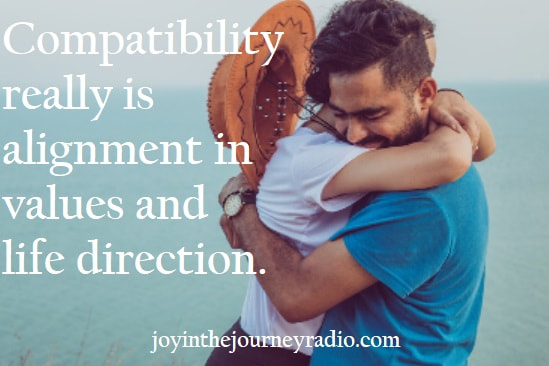



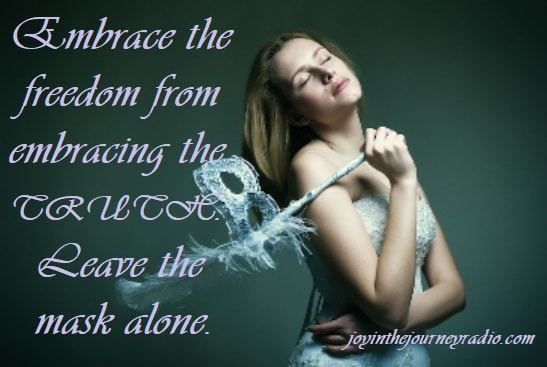

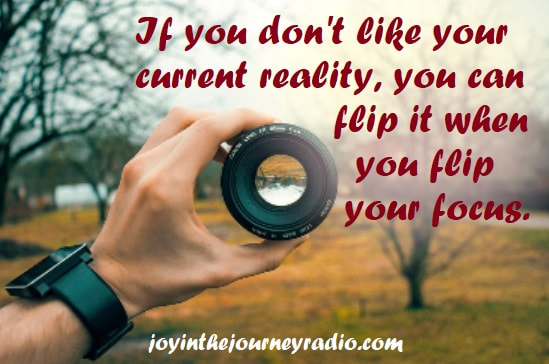



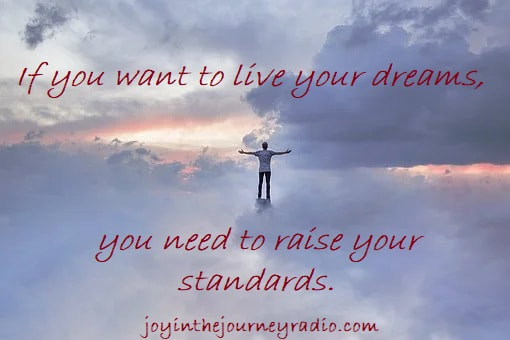

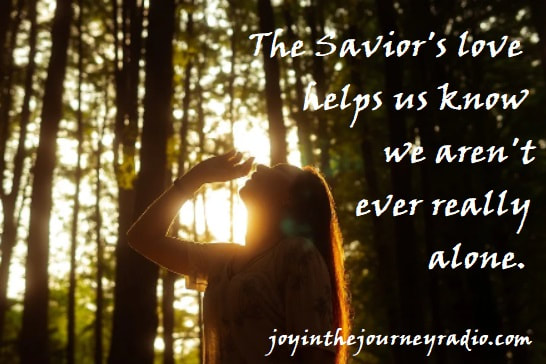



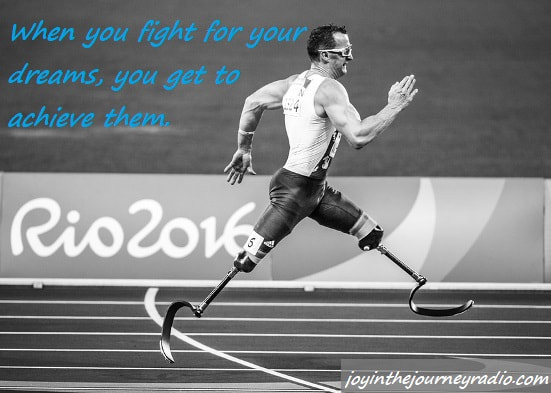
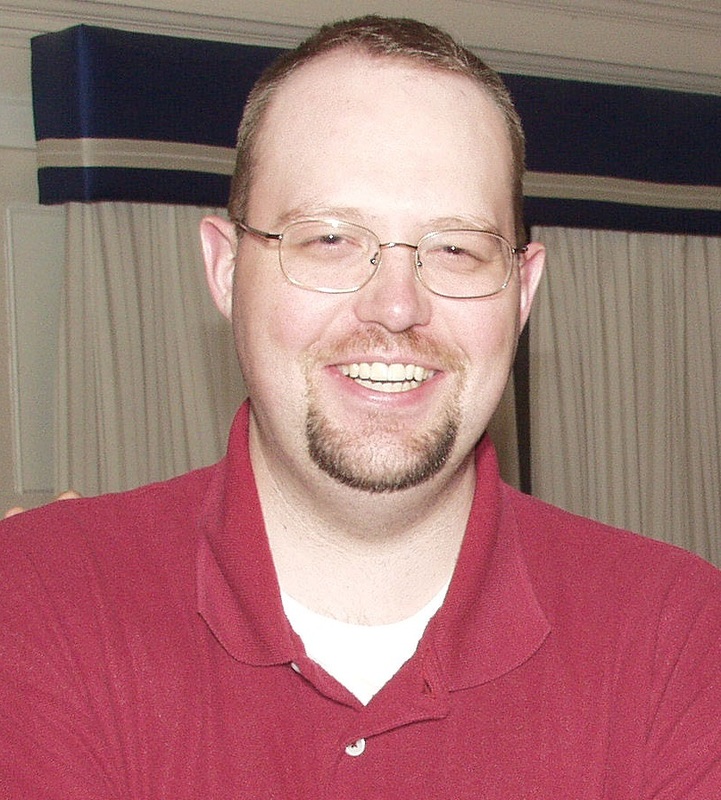
 RSS Feed
RSS Feed